Rental Property Tax Deductions in Canada: Maximize Your Returns
Investing in rental property can be a lucrative way to build wealth, but smart investors know that keeping a sharp eye on tax deductions is essential to maximizing profits. If you're a landlord in Canada, understanding which expenses you can deduct can make a significant difference to your bottom line. At Wealth Builders, we specialize in helping investors navigate the nuances of property ownership, including tax efficiency. Here's a guide to the most common deductions and how to make them work for you.
1. Mortgage Interest
One of the largest and most impactful deductions available to landlords is mortgage interest. The portion of your mortgage payments that goes toward interest (not principal) is deductible as a legitimate expense. Keep detailed records of your mortgage statements to calculate the exact amount you can claim.
Pro Tip: Speak to a tax advisor to determine if refinancing your property could increase your deductible interest.
2. Property Taxes
Municipal and provincial property taxes for your rental property are fully deductible. Be sure to retain all tax bills and receipts to ensure you can claim the full amount.
3. Repairs and Maintenance
Routine repairs and maintenance that keep your property in good condition are deductible. Examples include:
Fixing leaky faucets
Repainting
Replacing broken windows
What’s Not Deductible? Major renovations that add long-term value, like a kitchen remodel, aren’t considered repairs but can be deducted as capital expenses over time through depreciation (more on that below).
4. Utilities and Operating Expenses
If you, as the landlord, pay for utilities like water, electricity, or gas, these costs can be deducted. Other operating expenses include:
Internet or cable (if provided for tenants)
Garbage removal
Security system fees
Pro Tip: If utilities are shared between you and your tenant, only claim the portion used by the tenant.
5. Property Management Fees
If you hire a property management company to handle day-to-day operations like tenant screening, rent collection, or maintenance, these fees are tax-deductible.
6. Insurance Premiums
The cost of insuring your rental property is fully deductible. This includes landlord insurance, which protects you from risks associated with rental properties, such as liability coverage or loss of rental income.
7. Advertising Costs
Expenses related to finding tenants, such as posting rental ads on websites, printing flyers, or paying for online listing services, can be claimed as deductions.
8. Depreciation (Capital Cost Allowance)
While you can’t deduct the full purchase price of your property, you can deduct a portion of its value each year through the Capital Cost Allowance (CCA). This allows you to write off the wear and tear of the building over time.
Important Note: Claiming CCA can have implications when you sell the property, as you may face a "recapture" of depreciation. Consult a tax professional to determine if claiming CCA is the right strategy for you.
9. Professional Services
Fees for professional services related to your rental property, such as:
Accounting and bookkeeping
Legal services for lease agreements or evictions
Consulting fees for tax planning
These services ensure your investment runs smoothly and are fully deductible.
10. Travel Expenses
If you travel to manage your rental property—for example, to conduct inspections, meet with contractors, or address tenant issues—these travel expenses may be deductible. Keep detailed records of mileage, fuel, and parking costs.
Note: Travel must be directly related to managing your property, not for personal purposes.
Record-Keeping Is Key
The Canada Revenue Agency (CRA) requires landlords to keep accurate and detailed records to substantiate deductions. Invest in accounting software or hire a professional to ensure compliance and avoid missed opportunities.
Leverage Wealth Builders’ Expertise
At Wealth Builders, we don’t just help you find the right investment properties—we guide you through every step of the ownership process, including strategies to minimize your tax burden. With our proven experience as investors ourselves, we’re uniquely positioned to help you maximize your returns and build lasting wealth.
Ready to take the next step in your real estate investment journey? Contact Wealth Builders today to discover how we can help you achieve your financial goals.
Disclaimer: This article is for informational purposes only and should not be considered tax advice. Always consult with a qualified tax professional to understand how tax laws apply to your specific circumstances.

